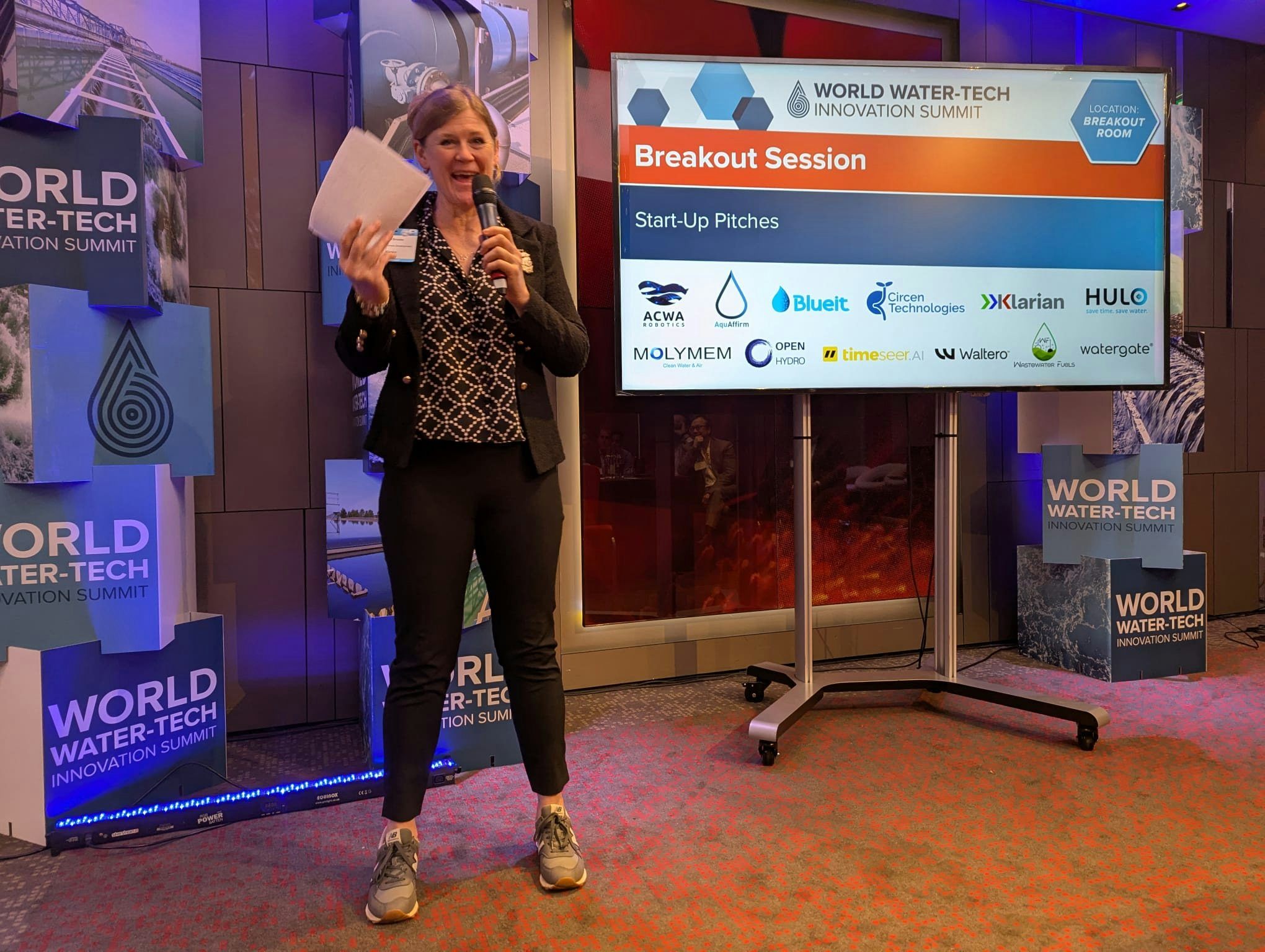Learnings from the World Water Tech Innovation Summit
The coming decade will shape the future of global water management. This was the core sentiment at the World Water Tech Innovation Summit (WWTIS) in London, where industry leaders gathered to explore innovative ways to address the water sector’s most pressing challenges. The focus this year? Driving energy efficiency.
With the climate crisis intensifying, the water sector must find solutions to reduce its carbon emissions. Pumping systems alone account for 20% of global energy use, making them a prime area for optimisation.

Klarian took centre stage at WWTIS as a featured start-up, presenting Juno Perform, a technology that has transformed energy efficiency in the pipeline sector. Already proven in the energy industry, Juno has helped the British Pipeline Agency (BPA) achieve a 20% efficiency gain across its pumping routes, significantly reducing energy consumption and emissions. Now, Klarian is applying this expertise to water infrastructure, aiming to create a more sustainable planet.
Over the course of the two-day summit, our team—Paul Silver, Sarah Brooks, and Anna Andersson—engaged with delegates, attended insightful presentations, and gathered these valuable learnings about fostering innovation in the water sector:
Innovation Requires Clearer Pathways
How can a groundbreaking idea evolve into an industry-standard solution in the water sector? Currently, the answer isn't straightforward. For meaningful innovation to thrive, clear and streamlined pathways to adoption are essential.
Thankfully, investment in water technology is growing. Venture capitalists are beginning to recognise the sector's challenges, offering invaluable support to start-ups. However, the complexity of managing water operations—where resources must balance often competing priorities—can hinder innovation from flourishing.
Start-ups, being agile and resourceful, are well-placed to drive change. With the right investment and partnerships, they can develop solutions that larger organisations often cannot. Klarian exemplifies this. Juno Perform has adapted seamlessly from the energy sector into water, demonstrating how collaboration and a clear product-market fit can accelerate adoption.
Building Trust and Safety
Safety, reliability, and trust remain non-negotiable in water operations. Start-ups must not only develop innovative technologies but also ensure they meet the sector’s critical safety standards. At Klarian, we focus on explainable technology—tools that water operators can fully understand and trust. This transparency builds the confidence needed to integrate new solutions smoothly into day-to-day operations.
Collaboration is key. Partnerships between start-ups and water companies can help bridge the gap between innovation and implementation. By working together, the industry can foster trust, enable knowledge sharing, and pave the way for a more sustainable future.
Collaboration is Central to Progress
WWTIS highlighted the pivotal role of collaboration and trust in overcoming the water sector’s challenges. While frameworks like the Ofwat Innovation Fund have made strides in de-risking innovation and encouraging cooperation between academia, businesses, and water companies, more needs to be done. Expanding opportunities for innovative companies to enter the sector will be essential in the years ahead.
The next decade is a critical period for water management. By creating an environment where innovation can thrive, the industry can tackle its challenges head-on and ensure that these years are defined by progress, not missed opportunities.
Klarian is proud to be part of the conversation, working towards a future where water infrastructure is smarter, more efficient, and sustainable for generations to come.